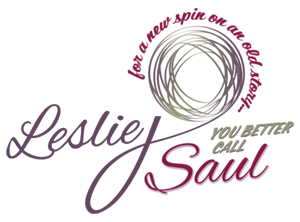5 Proven Strategies for Stronger Relationships and Communication
Build Stronger Relationships and Communication for Personal & Professional Success
Relationships and communication are at the core of our personal and professional lives. Whether it’s navigating family dynamics or leading a team at work, effective communication skills and strong connections play a vital role in our success.
But what happens when communication breaks down or relationships face challenges? The good news is that improving these areas is a skill you can develop. With intentional effort, you can strengthen bonds, resolve conflicts, and create a life rich in meaningful connections.
In this blog, we’ll cover how personal and professional relationships intersect, the essential skills for building stronger connections, and strategies to turn conflicts into opportunities for growth.
Why Personal and Professional Relationships Are Interconnected
Your personal and professional lives are more interconnected than you may realize. Skills like empathy, active listening, and clear expression—used to resolve a disagreement at home—are equally effective in navigating workplace dynamics.
Consider this: When your personal relationships thrive, you feel more supported, confident, and resilient, which enhances your performance at work. Likewise, strong communication and problem-solving skills learned at work can improve how you approach relationships at home.
The interplay between personal growth and professional success is undeniable. By focusing on both areas, you create balance and fulfillment in all aspects of your life.

5 Proven Strategies to Build Stronger Relationships
- Lead with Authenticity
Authenticity is the foundation of trust in any relationship. Being genuine doesn’t mean being perfect; it means showing up as your true self, flaws and all. Authenticity encourages others to do the same, fostering deeper connections. - Show Consistent Appreciation
Gratitude strengthens bonds. Take time to acknowledge and appreciate others, whether it’s a thank-you note to a coworker or a kind gesture toward a friend. Small actions of gratitude create lasting goodwill. - Prioritize Quality Time
Make time for the people who matter most. It could be a regular family dinner, a catch-up call with a friend, or a one-on-one with a team member. What’s important is being fully present in those moments. - Listen with the Intent to Understand
Active listening is more than just hearing words. It’s about fully engaging, asking clarifying questions, and reflecting on what you hear. This practice builds trust and mutual respect. - Cultivate a Collaborative Mindset
Whether in your personal life or at work, approach challenges as opportunities to collaborate. Focus on finding solutions together rather than assigning blame.
How to Improve Communication Skills
- Practice Clarity and Brevity
Clear and concise communication prevents misunderstandings. State your points directly while remaining respectful. - Mind Your Nonverbal Communication
Your tone, facial expressions, and body language often speak louder than words. Ensure your nonverbal cues align with your message. - Foster a Growth Mindset Toward Feedback
Constructive feedback is essential for improvement. Learn to give and receive feedback graciously. - Ask Thoughtful, Open-Ended Questions
Encourage meaningful conversations by avoiding yes-or-no questions. Instead, ask questions like, “How do you feel about this decision?” - Build Patience and Adaptability
Recognize that everyone communicates differently. Giving others the space and time they need to express themselves shows empathy and respect.

Turning Conflict into Growth Opportunities
Conflict is inevitable, but it doesn’t have to harm relationships. In fact, when handled effectively, conflict can strengthen trust and collaboration.
- Address Concerns Early: Nip issues in the bud before they escalate into larger problems.
- Separate the Person from the Problem: Focus on the issue at hand rather than making personal attacks.
- Seek Common Goals: Identify shared values or objectives to build a path toward resolution.
- Know When to Pause: If emotions run high, take a break and revisit the conversation later.
- Communicate Empathetically: Ensure the other person feels heard before presenting your perspective.
The Universal Desire for Connection
At our core, humans crave connection. We want to feel seen, heard, and valued. Strengthening relationships and communication satisfies this universal need, creating a sense of belonging and fulfillment.
When we prioritize relationships—whether personal or professional—we cultivate a life filled with support, trust, and mutual respect. By following the strategies outlined here, you can take meaningful steps toward enriching your connections.
Next Steps
Improving relationships and communication is a journey, not a destination. Start small by practicing active listening or expressing gratitude, and watch as your efforts ripple into all areas of your life.
Ready to deepen your relationships and improve communication skills? Explore my Life Coaching Services to discover how we can work together to achieve your goals.
For additional insights, visit our blog on Building Emotional Intelligence.
You can also explore related insights on LeslieJSaul.com and learn about the power of empathy in relationships.








